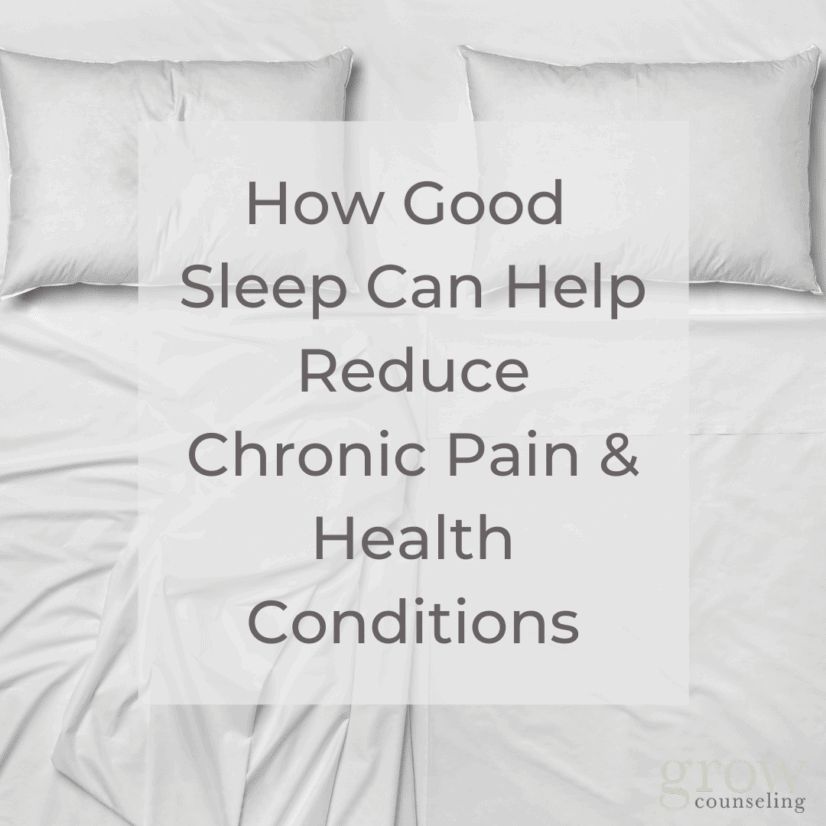For most of my clients, physical well-being directly impacts mental health, and this is particularly true for those living with chronic health conditions or pain.
Living daily with pain or limited function can significantly degrade one’s state of mind.
Long-term usage of medical pain management is also less than ideal, as many medical options create the risk of dependence or living with side effects such as sedation, lowered libido or weight gain. While medication is often one piece of the pain management puzzle, including natural options can lower the amount of medication needed, increasing overall health and quality of life.
One of the simplest and most effective natural pain management tools is quality sleep.
Sleep is an opportunity for your body to reset itself. If sleep is limited, the body is not maximizing its natural healing capabilities, and the cycle repeats itself- less sleep, more pain, less ability to sleep, leading to more pain.
Even for those who are pain free, healthy sleep habits have shown to reduce stress, increase creativity and problem-solving, and help maintain healthy physical function, among other benefits.
According to the National Sleep Foundation, 21 percent of Americans experience chronic pain and 36 percent have had acute pain in the past week, meaning 57% of the nation’s adult population has experienced chronic or acute pain recently. While pain can interfere with sleep, those who focus on creating the atmosphere necessary for quality sleep see positive change over time and a reduction in their pain.
Good sleep hygiene is relatively simple to achieve, and yet many of us do not regularly practice it.
Sticking with these steps over time will help put you on the path to a good night’s sleep each night, and improved physical and mental wellbeing as a result:
1. Find a firm, comfortable mattress and pillow that properly support your head and neck.
2. Ensure your room is free from light- even the light from a digital clock can be disruptive. If needed, find a comfortable night mask to block out light.
3. Keep your bedroom cool.
3. Stop using electronics at least an hour before bedtime. This includes TV, computers, and phones. Avoid stimulating or upsetting content during this time- focus on things that relax you.
4. Try to go to bed and wake up at around the same time every day to help your natural circadian rhythms.
4. Create a bedtime routine- steps you take every night before getting into bed, to cue your body’s natural release of melatonin.
5. Do not use caffeine in the afternoon, and limit alcohol consumption as it can significantly lower the quality and depth of sleep.
Written by: Molly Halbrooks

